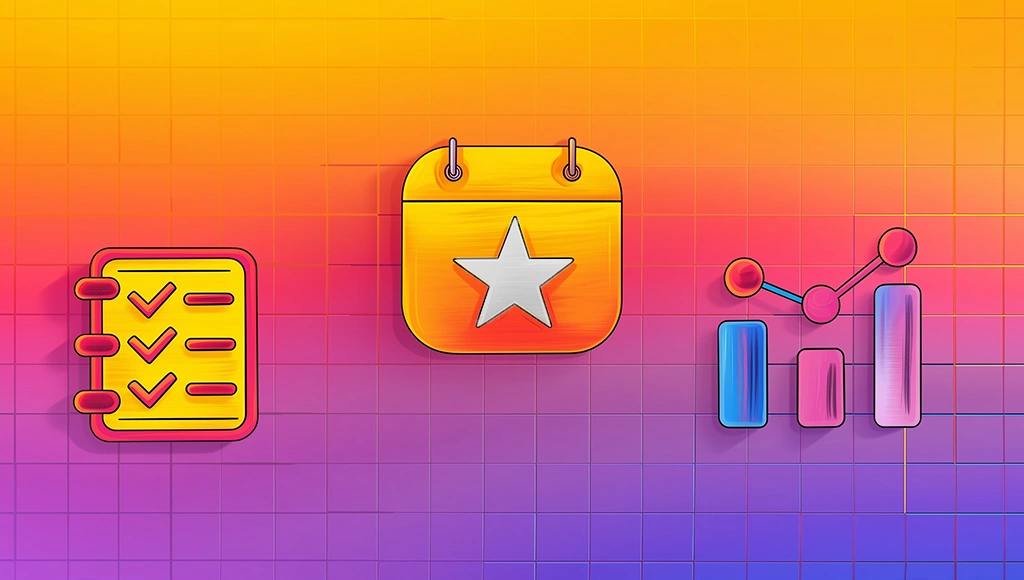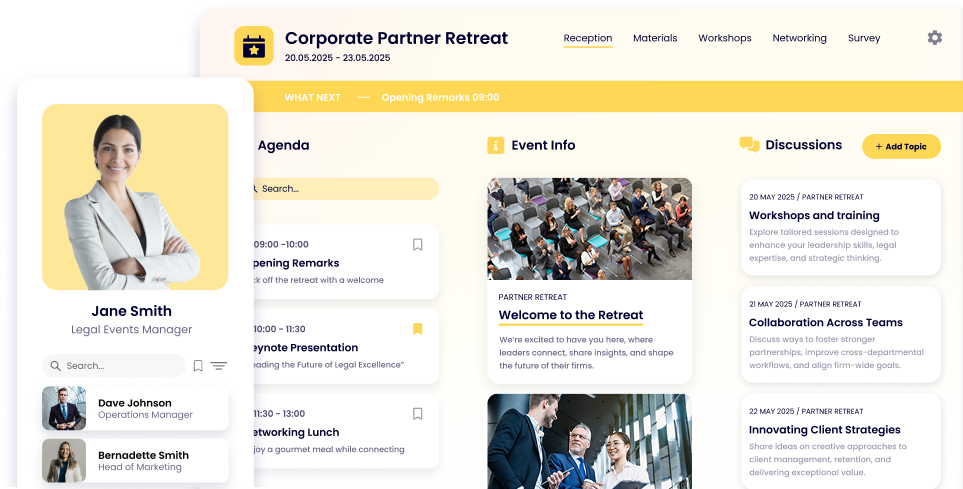Top Strategies for Effective Event Project Management

Lisa Broom | Head of Marketing
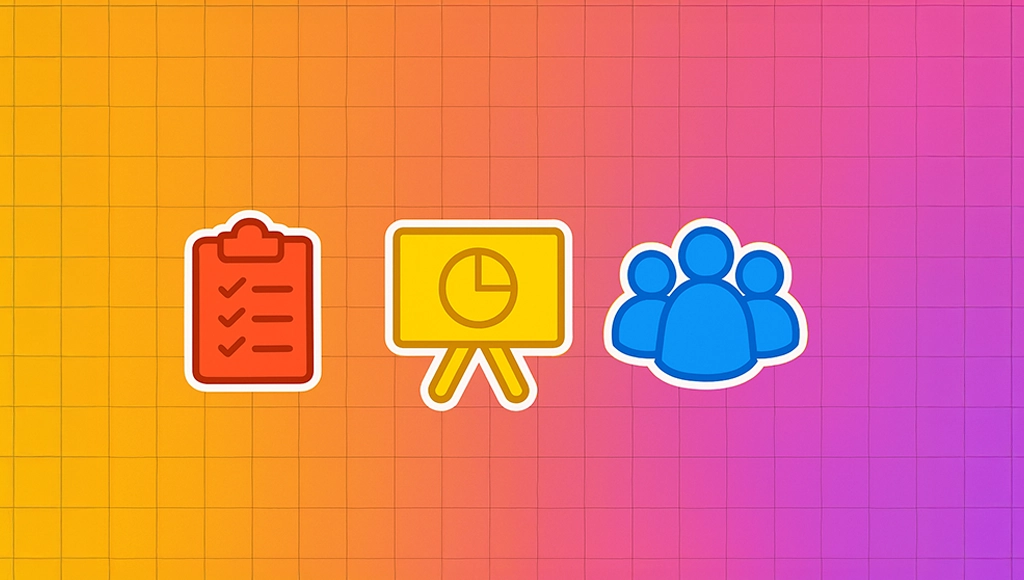
Event project management is crucial for turning ideas into successful events. Whether you’re planning a corporate conference or a community festival, knowing how to manage every detail can make or break your event. This article outlines core strategies, key roles, and useful tools to help you create a well-organized event that leaves a lasting impression.
Key Takeaways
- Effective event project management aligns event objectives with organizational goals, manages risks, and optimizes costs.
- Clear event goals using the SMART framework ensure clarity and trackability.
- Project management tools and centralized task systems improve communication and coordination.
Understanding Event Project Management
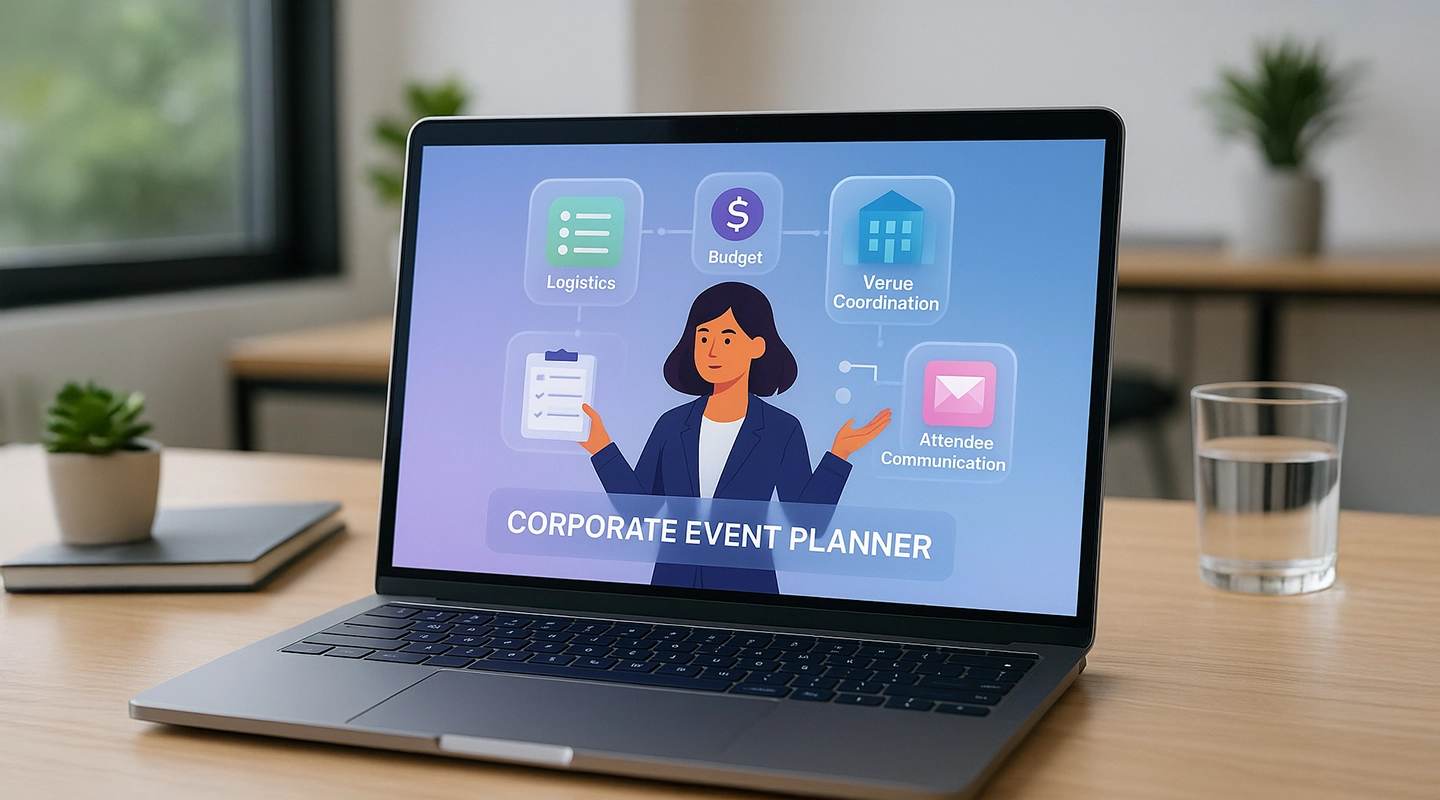
Effective event project management minimizes risks, ensures quality, and keeps costs within budget. It aligns event efforts with broader business goals, improving the overall experience and outcome.
Event project managers play a pivotal role by:
- Coordinating teams
- Communicating with stakeholders
- Overseeing planning through execution
Their involvement guarantees that every detail is aligned for a seamless event experience.
Key Roles in Event Project Management
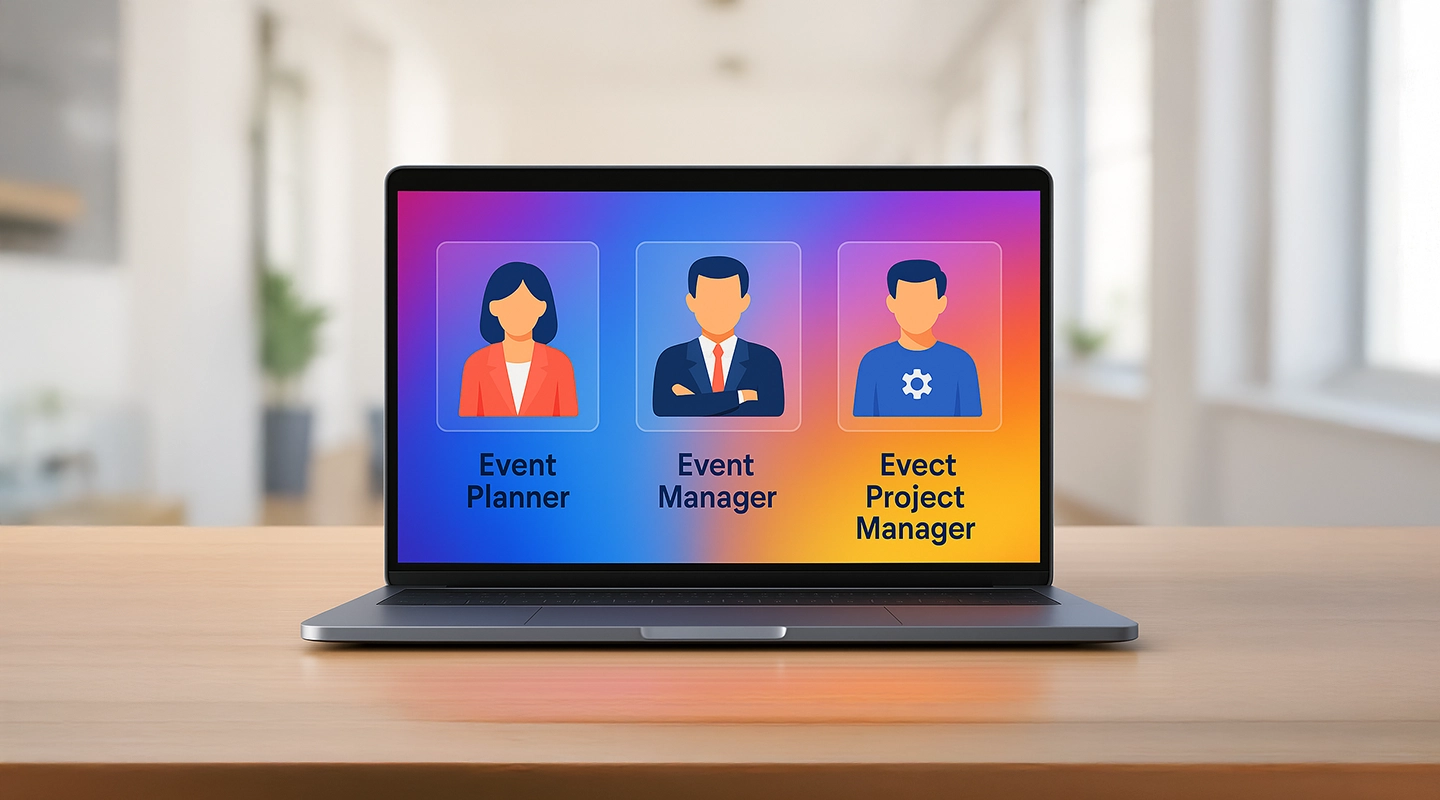
Successful events rely on a strong team. Key roles include:
- Event Planner: Develops strategy, manages logistics, and oversees setup and breakdown.
- Event Manager: Maintains timelines, manages stakeholders, and handles on-site execution.
- Event Project Manager: Coordinates all services, manages logistics and vendor relations, and ensures effective delivery.
Assigning roles early promotes smooth execution and collaborative success.
Defining Clear Event Goals
Setting goals aligns your event with organizational strategy. Use the SMART framework:
- Specific
- Measurable
- Achievable
- Relevant
- Time-bound
Define KPIs such as:
- Registration rate
- Engagement metrics
- Post-event feedback scores
This ensures progress tracking and strategic adjustments.
Creating a Comprehensive Event Plan
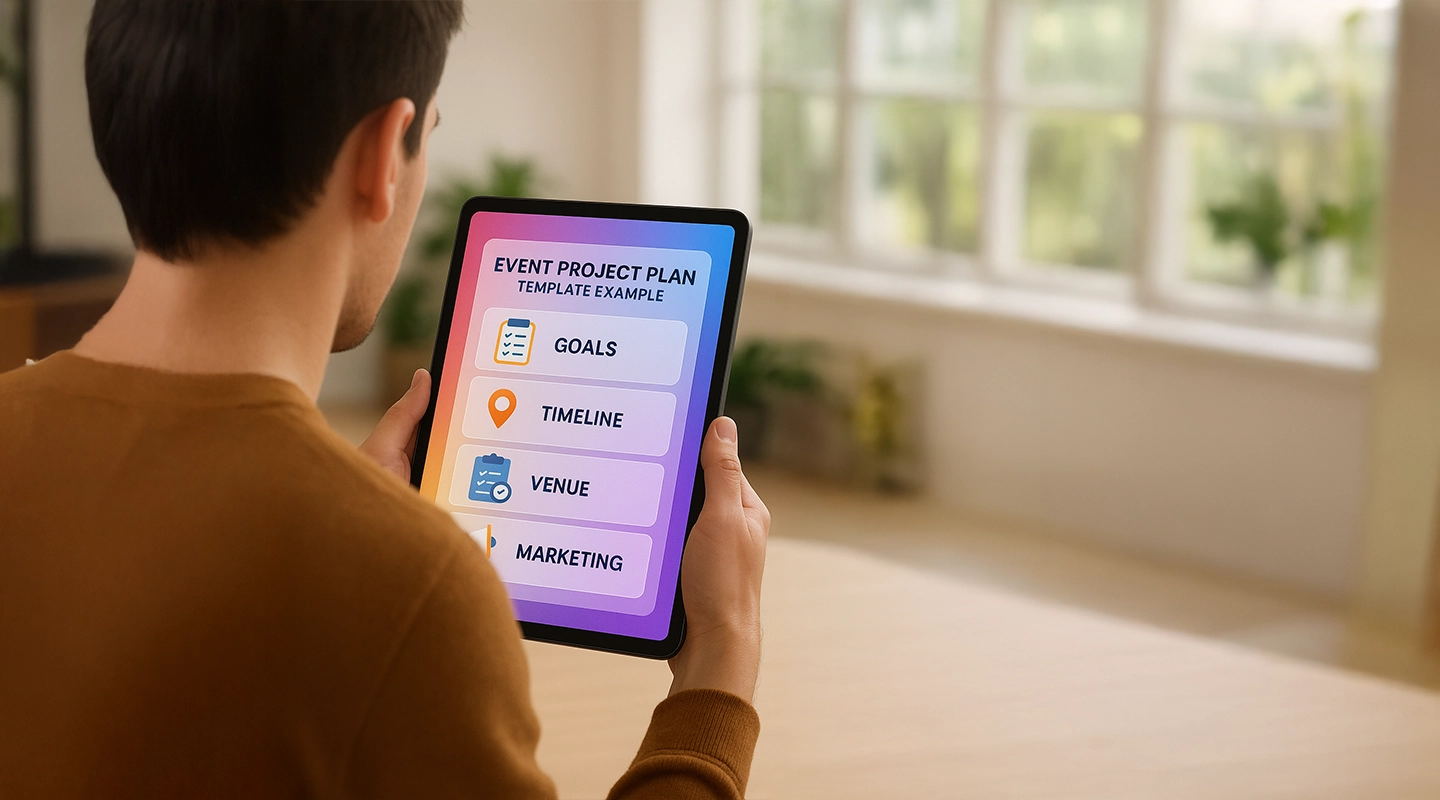
An event plan acts as a blueprint. It should include:
- Objectives
- Budget
- Timeline
- Venue selection
- Permits and logistics
Use event plan templates to assign responsibilities and visualize each phase.
Establishing a Realistic Event Budget
Break your budget into specific line items:
- Venue rental
- Catering
- Technology
- Marketing
- Transportation
- Personnel
Tips:
- Set a 10–15% contingency fund
- Review budget regularly
- Use digital budgeting tools
- Compare with industry benchmarks
Selecting the Perfect Event Venue
Choose a venue that:
- Matches your event’s size and goals
- Offers good accessibility
- Has necessary on-site services
Layout and flow matter—plan for registration, breakout areas, and transitions.
Utilizing Project Management Tools
Digital tools streamline planning and communication.
Recommended tools:
- Trello: Visual task boards
- Asana: Timelines and goals
ProjectManager.com: Gantt charts, budget tracking
These tools improve visibility and stakeholder alignment.
Centralized Task Management Systems
Central systems help:
- Track tasks
- Share real-time updates
- Automate reminders
- Integrate calendars
This enhances transparency, accountability, and deadline compliance.
Developing an Effective Marketing Strategy
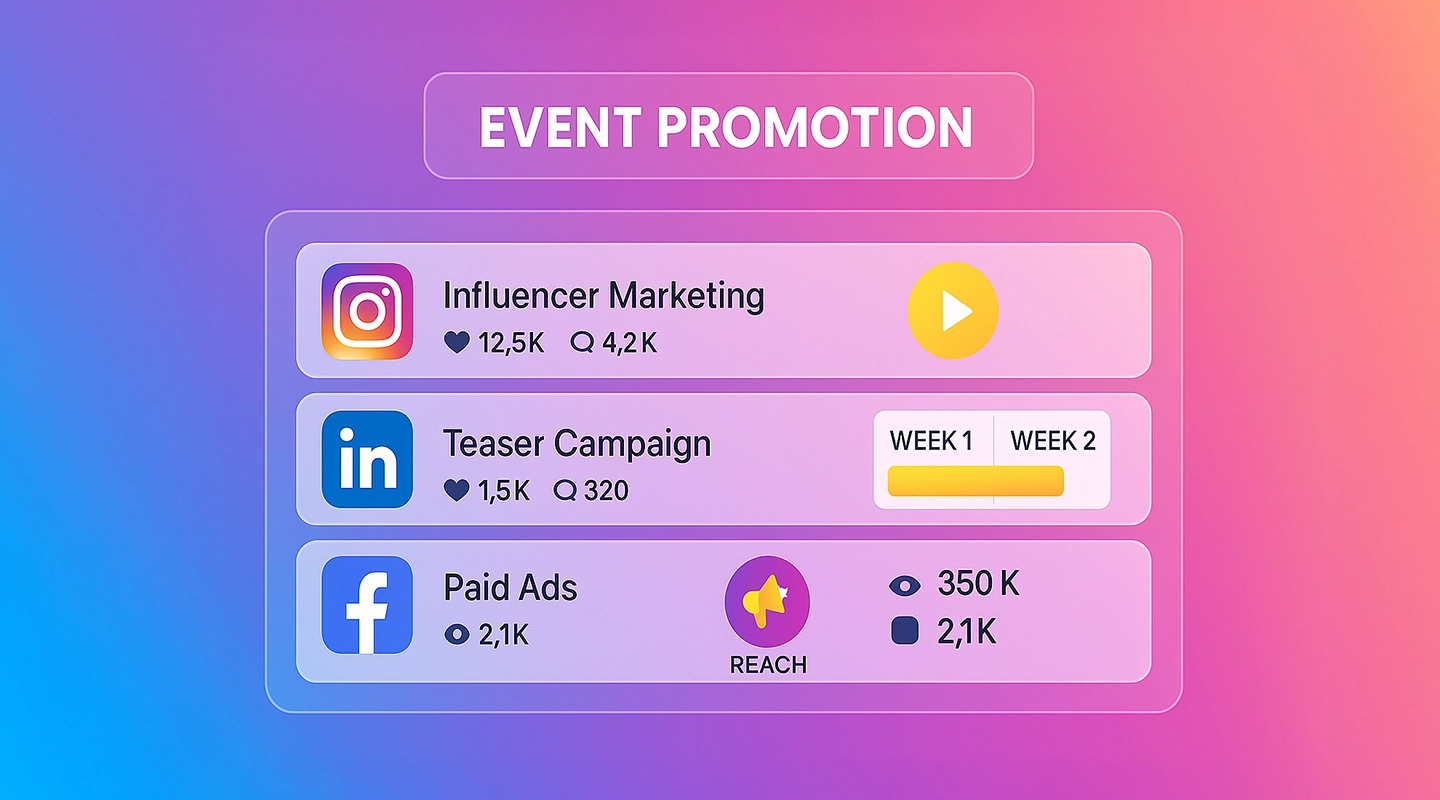
Key steps:
- Identify your target audience
- Use teaser posts and email campaigns
- Partner with relevant influencers
- Combine organic, earned, and paid media
💡 “80% of companies say events are critical to their success” – Bizzabo
Managing Vendor and Supplier Relationships
Treat vendors as strategic partners:
- Maintain open communication
- Define clear deliverables in contracts
- Review performance regularly
Long-term partnerships can bring better pricing and reliability.
Engaging Your Target Audience
Boost engagement by:
- Offering personalized schedules
- Using mobile apps for updates and maps
- Encouraging live social sharing
- Following up with personalized thank-you notes
- Hosting hands-on workshops
Tools like Fliplet empower event teams to build mobile event apps without coding, enhancing attendee experience with schedules, push notifications, and interactive features.
Executing the Event Day Plan
Prepare for disruptions:
- Brief your team in advance
- Share a detailed itinerary
- Monitor operations closely
- Have contingency plans for weather, speaker no-shows, etc.
Post-Event Evaluation and Reporting
Assess success through:
- Post-event surveys
- Engagement and financial metrics
- Stakeholder feedback
Create an event report with:
- Attendance numbers
- KPI performance
- Feedback highlights
- Final budget summary
Best Practices for Future Events
After the event:
- Document lessons learned
- Refine budgeting and planning processes
- Scale successful tactics
- Maintain ongoing feedback loops
💡 “77% of B2B marketers use experiential marketing as a vital part of their strategy” – Statista
📋 Event Project Management Checklist
- ✅ Define SMART event goals
- ✅ Assemble and assign key roles
- ✅ Create a detailed event plan
- ✅ Set a realistic, flexible budget
- ✅ Choose a venue aligned with event objectives
- ✅ Use digital project management tools
- ✅ Develop an omnichannel marketing strategy
- ✅ Build strong vendor relationships
- ✅ Execute a contingency-ready event day plan
- ✅ Conduct a comprehensive post-event review
Summary
Event project management is the backbone of successful event execution. From setting SMART goals to leveraging modern planning tools and platforms like Fliplet, the strategies covered here help ensure your event runs efficiently and leaves a lasting impact. Focus on team coordination, strategic budgeting, and post-event analysis to elevate your future event planning initiatives.
FAQs
What is the primary role of an event project manager?
To coordinate teams and ensure effective communication throughout planning and execution phases.
How can I ensure my event goals are clear and achievable?
Use the SMART framework and set measurable KPIs aligned with organizational goals.
What are the key components of a comprehensive event plan?
Budget, timeline, logistics, permits, marketing, venue, and scheduling.
Why is it important to have a contingency fund in the event budget?
To protect against unexpected costs and ensure financial flexibility.
How can post-event evaluations improve future events?
They provide insights into what worked and what didn’t, leading to continuous improvement.



